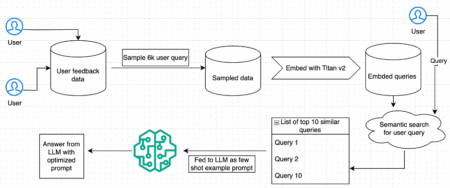In the rapidly evolving field of artificial intelligence (AI), the prevailing narrative often focuses on the massive resources required to build foundational AI models, akin to the efforts of giants like OpenAI and Anthropic. These stories conjure images of billion-dollar budgets and vast computational power, seemingly out of reach for startups and smaller companies. Yet, the reality, as demonstrated by Y Combinator (YC), the renowned startup accelerator, tells a vastly different and more encouraging story about the democratization of AI technology.
Y Combinator recently showcased an impressive array of 25+ startups from its batch that have withstood conventional approaches by successfully training their own AI models. This initiative highlights a critical shift in the AI landscape: building AI models is becoming faster, cheaper, and more accessible than many have imagined. These startups have not merely leveraged pre-existing models through APIs; they’ve built their own from the ground up, underscoring a significant advancement in the field.
The showcased companies cover a broad spectrum of applications, from generating professional-quality music with Sonauto, designing novel proteins for vaccines with Diffuse Bio, to enhancing meteorology with Atmo’s AI-powered weather predictions. These examples illustrate not just the versatility of AI applications but also the innovative spirit driving startups to push the boundaries of what’s possible with AI technology.
Key to these successes are the strategic advantages provided by YC, including $500k in funding, over $1 million in cloud credits, and access to dedicated GPUs. These resources, coupled with the founders’ ingenuity and relentless resourcefulness, have allowed these companies to train models, launch them to production, and secure paying customers within the tight timeframe of a YC batch, typically three months.
One of the pivotal revelations from these examples is the range of technical innovations employed to build these models efficiently. Startups have developed smart technical tricks to reduce computation needs, including creative model architectures and the use of industry-specific insights to minimize data requirements. These approaches have sped up the development process and made it more cost-effective, debunking the myth that only well-funded companies can afford to build AI models.
This movement has broader implications for the AI field. By demonstrating that it’s feasible for startups to build and fine-tune their own foundation models, YC is inspiring a new wave of founders to explore AI’s potential. This could lead to a significant expansion in the diversity of AI applications, fostering innovation and potentially leading to breakthroughs that could have remained undiscovered in a more centralized AI development ecosystem.
Here is a list of those 25 AI Startups:
Atmo: Revolutionizing weather forecasting with AI, Atmo delivers unprecedented accuracy in meteorological predictions for governments, military, and businesses, cutting costs significantly compared to traditional methods.
Can of Soup: A creative app enabling users to generate AI-powered photos depicting themselves and friends in fantastical scenarios, a groundbreaking model developed during their YC journey.
Deepgram: Offering APIs for lightning-fast speech-to-text transcription and lifelike text-to-speech services, enhancing accessibility and communication efficiency.
Diffuse Bio: At the forefront of biotechnology, creating foundation models that innovate the design of new proteins for vaccines and therapeutic applications.
Draftaid: Utilizing AI to assist engineers and designers with CAD drawings, transforming 3D models into detailed fabrication plans required by manufacturers.
Edgetrace: Empowering users to sift through extensive video datasets using simple English, streamlining searches for specific events or objects within footage.
EzDubs: Innovating real-time video dubbing in various languages while preserving the original speaker’s voice, enhancing global content accessibility.
Exa: Redefining search for AI and developers with an engine that prioritizes meaning over keywords, seamlessly integrating sophisticated queries into product solutions.
Guide Labs: Demystifying foundation AI models by making them interpretable, providing explanations for their outputs and the influences behind their decisions.
Infinity AI: Pioneering a “script-to-movie†AI that translates written scripts into visual content, starting with “talking-head†style videos from scripts.
K-Scale: Building the essential infrastructure to support robotics foundation models, aiming to crack the code of real-world embodied intelligence.
Linum: Crafting tools and models for creating animated videos from simple prompts, offering a new avenue for digital storytelling.
Metalware: Providing AI solutions for firmware engineering, facilitating rapid development with tools like a specialized copilot and an efficient PDF reader.
Navier AI: Advancing computational fluid dynamics with real-time physics-ML solvers crucial for innovation in aerospace and automotive industries.
Osium AI: Accelerating new material design with AI that predicts material properties and streamlines the analysis of microscopic images.
Phind: Introducing a conversational search engine for developers, integrating seamlessly with coding environments to offer context-aware solutions.
Piramidal: Specializing in brain activity analysis through AI, offering neurologists a powerful tool for diagnosing conditions like epilepsy with greater efficiency.
Playground: Transforming image editing with an AI-powered platform capable of generating, merging, and modifying images through simple text prompts.
PlayHT: Creating highly expressive, AI-generated voices for media and content creation, capable of learning a new voice from a short sample.
SevnAI: Innovating in graphic design with foundation models that produce easily editable SVGs, overcoming the limitations of current image generation models.
Sonauto: Revolutionizing music creation with AI, allowing users to generate songs from lyrics and descriptions, offering a fresh avenue for musical expression.
Sync Labs: Developing technology to re-sync video lips with audio in different languages naturally, aiming for real-time applications like live translated calls.
Tavus: Introducing video personalization at scale, automatically tailoring content to individual viewers, including names and company details, for enhanced engagement.
Yoneda Labs: Assisting chemists in optimizing chemical reactions through AI, determining the ideal conditions for reaction efficiency and yield.
Yondu: Leading the development of foundation models for autonomous robot navigation, paving the way for more intelligent and adaptable robotic systems.
The post 25+ AI Companies from Y Combinator that have Trained their Own AI Models Instead of Using Someone Else’s Closed Model Through an API like a Black Box appeared first on MarkTechPost.
Source: Read MoreÂ



